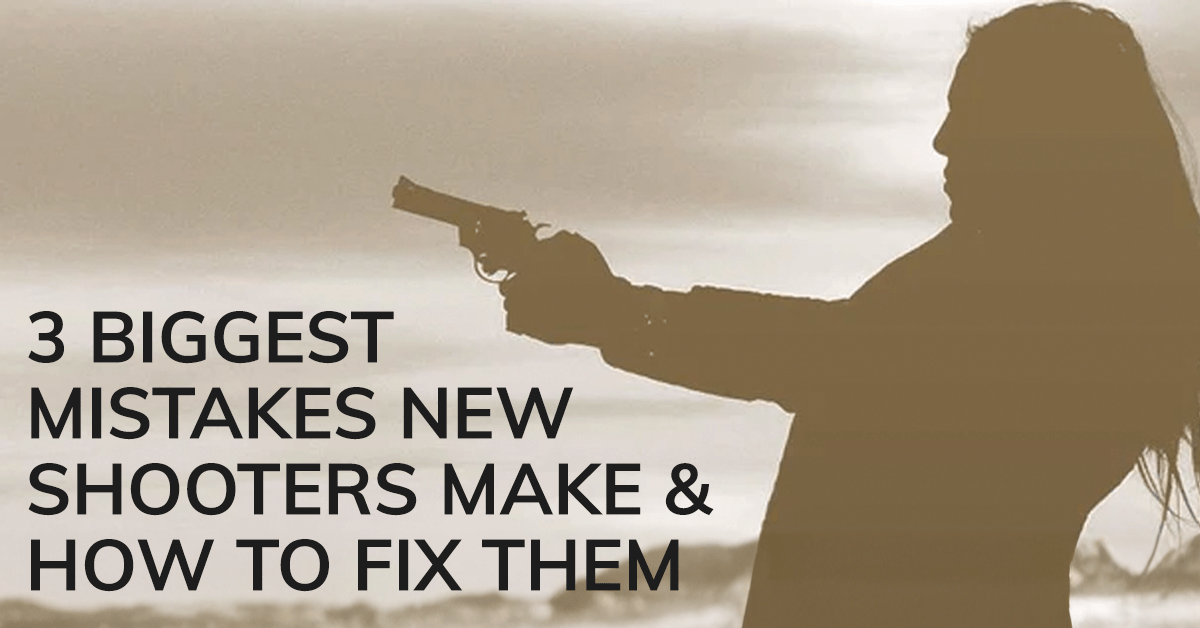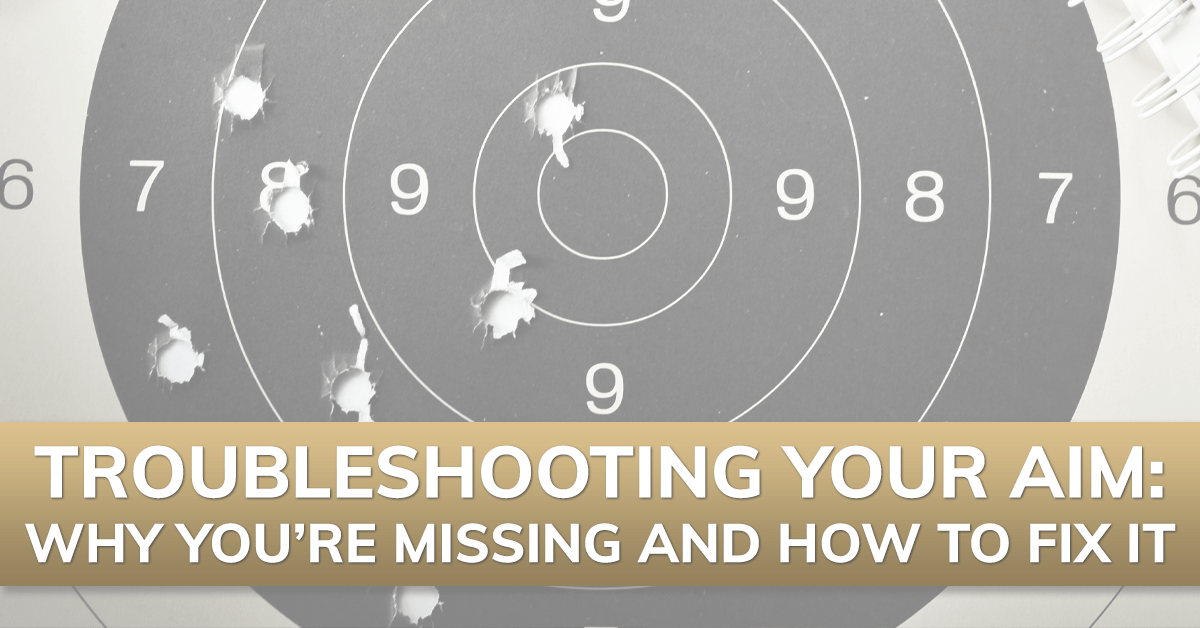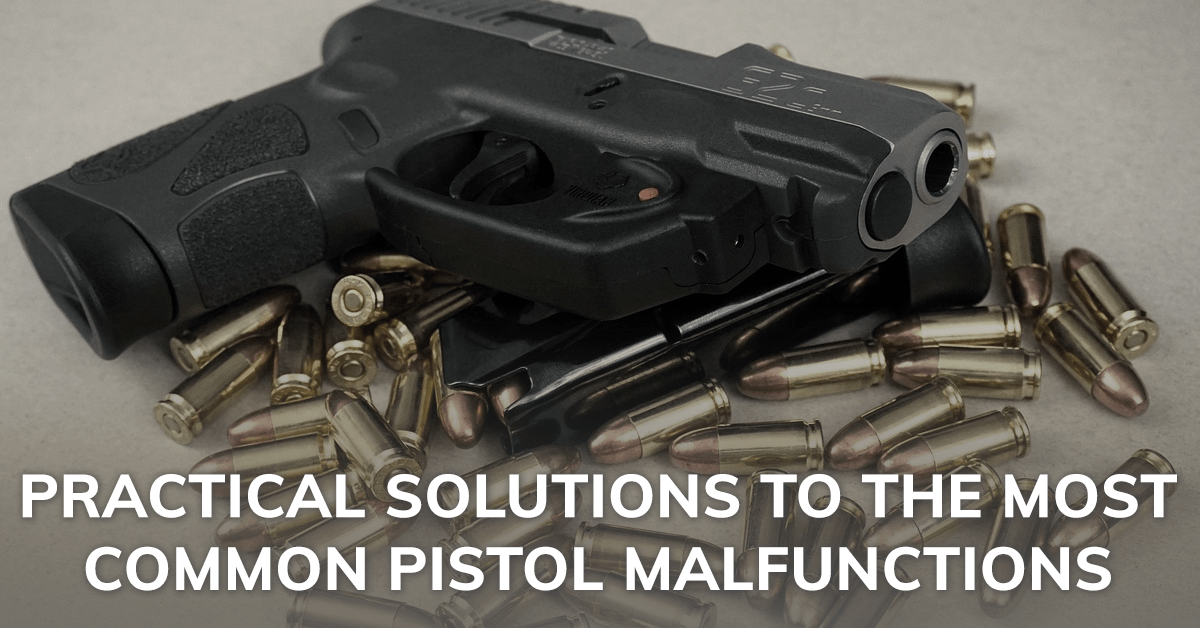Your Cart is Empty
Orders Over $100 Ship FREE (USA)!
Orders Over $100 Ship FREE (USA)!
CONCEALED CARRY
(Apparel with holster pockets or concealed-carry features)
(Apparel with holster pockets or concealed-carry features)
PARTS & GEAR
RANGE STYLE
Gift shopping & not sure about size or style? Give a gift card instead!
Gift shopping & not sure about size or style? Give a gift card instead!
GIFT IDEAS
The entire site is full of products that make great gifts, so browse all of our collections! Still not sure? Give a gift card!
The entire site is full of products that make great gifts, so browse all of our collections! Still not sure? Give a gift card!
EXPLORE
What Are Squib Loads and How Should You Deal with Them?
3 min read
If you’ve ever fired your gun and you heard a "pop" instead of a "bang", it was probably a squib. This is one of those not-so-fun things that can happen when you're shooting at the range, and It's important to know what to do if it happens so you can handle it safely and effectively.
A squib can be dangerous to both you and those around you, so it's not something you can ignore. Here's how to recognize and reduce the dangers of them.
What's a Squib Load or Squib Round?
Squib loads happen. No matter how careful you are or how much experience you have, it's just a matter of time before you'll either experience one or are present when a squib happens.
According to the experts at The Sporting Arms and Ammunition Manufacturers' Institute (SAAMI), a squib load is a cartridge or shell that produces projectile velocity and sound substantially lower than normal. This may result in projectile and/or wads remaining in the bore.
What does that mean in layman's terms? It means a squib is a malfunction caused by some kind of failure in the cartridge manufacturing process that leads to not enough (or no) powder in the cartridge. It's usually due to poor quality control at the ammunition factory, but it can also happen if you reload your own ammunition and don't put enough powder in the cartridge (or miss that stage completely).
Many people associate squib loads only with home reloads or remanufactured ammo. While the chances of them happening with professionally-made new ammunition can be smaller than with remanufactured or ammo loaded on a press at home, they can happen with even the best quality new manufactured ammo.
What Happens to The Bullet When You Have A Squib Load?
When you "have a squib", there's not enough pressure to push the bullet out of the barrel. This can result in a number of problems. The biggest issue is usually the bullet gets lodged inside your barrel. This means you cannot shoot the gun until it's cleared. If you try to fire again without fixing this problem, you can seriously damage your gun and put yourself at risk for an accident.
Are Squibs Dangerous?
Yes, they can be very dangerous to you, those around you, and your firearm! If you try to fire another round when there's already a round inside your barrel, you can cause serious damage to your firearm, and that same damage can result in serious injuries to yourself or others near you.
How to Identify a Squib Load
When you fire a squib round, the result is an underpowered discharge, which produces significantly less noise and recoil than normal. Understanding squibs and knowing what to do if you experience one will help keep you safe and prevent any serious injury from happening at the range.
Every time you fire a round, it's important to keep an eye out for these signs of trouble that indicate a squib:
- You’ll hear a click or soft "pop" sound when you fire your gun
- Your shot seems much quieter than normal
- You feel much less recoil than normal
What to Do if You Get a Squib
If you experience a squib load STOP IMMEDIATELY and do not attempt to fire again.
First, hold your firearm down range for several seconds in case it's a hangfire (a delay in when the primer ignites the powder and the bullet leaves the gun). If you wait 5-10 seconds and nothing happens, stay calm and keep the gun pointed downrange. Eject your magazine and lock the slide back, then start inspecting your firearm (safely) to see if there's a bullet stuck in the barrel.
If the bullet is still in there, you'll need something to push it out. This will likely require a good amount of force. A squib rod is a tool purpose-designed to remove a stuck bullet from a barrel, you can also use a cleaning rod. It's a good idea a tool like this in your range bag at all times. While the chances of you getting a squib load are small, if you have the right tool, you may end up helping out your shooting neighbor if it happens to them.
Also in Skill Building: Troubleshooting

3 Biggest Mistakes New Shooters Make & How To Fix Them
4 min read
Here are a few of the biggest mistakes new shooters make, along with some friendly advice on how to correct the issues.

Troubleshooting Your Aim: Why You’re Missing Your Target and How to Fix It
3 min read
Looking to improve your shooting accuracy? Learn how to identify and fix common issues like anticipation, flinching, and improper grip.
Read More
Practical Solutions to The Most Common Pistol Malfunctions
4 min read
It's incredibly important to understand what's happening when your gun isn't working like it's supposed to, and know ahead of time how to work past the problem.
Read More